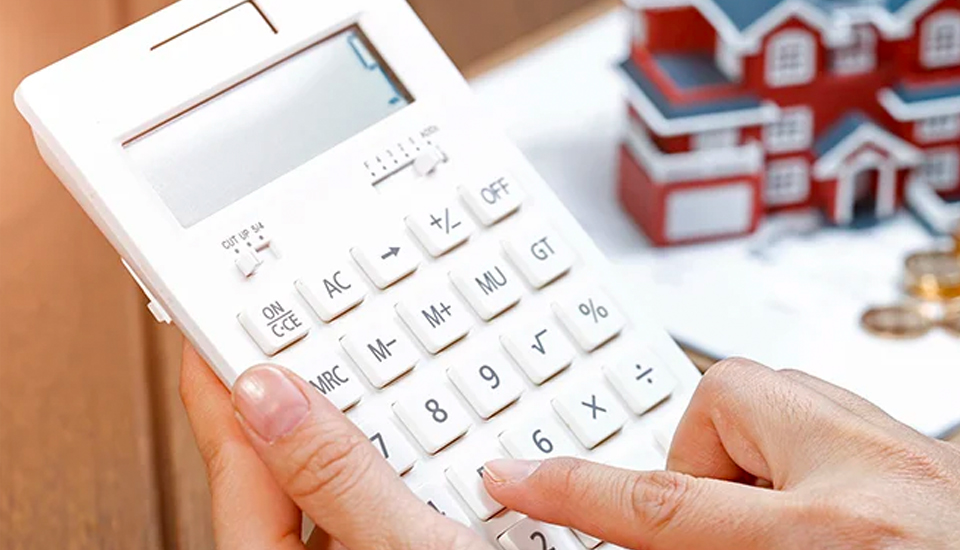How Much House Can I Afford? 5 Steps to Ensure You Don't Overspend

You have been saving and planning, and now it is finally time to start shopping for your first home! We are thrilled for you! But before you hit the real estate listings or start interviewing agents, you have a little math to do.
We know, math may not be your favorite subject, but you need to know your budget before you start looking at houses. The last thing we want is for you to end up with buyer's remorse. We are here to help.
If you have been asking, "how much house can I afford?" this five-step guide will help you land on a number so you can shop confidently.
For more tips on finding and purchasing the perfect house for you, download our free checklist:
1. Calculate Your Maximum Payment and Price Based on Your Income
You can only spend the money you make, so your income should be the basis of your calculation. Do this calculation before you fall in love with your dream home because it can drive your shopping process.
So how do you calculate this? It is time to do some math.
First, add up all your take-home pay in the household, including your significant other's income.
Next, multiply with 25%. This gives you the maximum you should pay monthly for your mortgage and associated costs.
Once you have that amount, use a mortgage calculator to determine the purchase price that works. You will need to know an approximate interest rate and how much you have as your down payment. Remember to add the cost of your homeowner's insurance and property taxes to your monthly payment. By doing this calculation, you will have a ballpark of how much you can afford to spend on your home.
2. Save More for Your Down Payment to Avoid PMI
PMI is a nasty little word that stands for private mortgage insurance. Most no-money or low-money-down home loans charge this or a similar fee. This is an added fee you pay every month just for the privilege of borrowing money.
Does that sound like something you want to avoid? We think so!
So, what can you do to prevent PMI or similar charges? The key is a larger down payment.
To answer that question, we have to get a little technical.
For most home loans, you need a loan-to-value (LTV) ratio of 80% or less to avoid PMI. This means your down payment needs to be about 20% to protect you from this cost. If you can't save 20% for your first mortgage and home purchase, save as much as you can. Once the LTV reaches 80%, the PMI can go away. The larger your down payment, the less time you'll be paying this cost.
3. Consider Other Possible Expenses of Home Ownership
If all that you budget for is your mortgage costs, you are going to be hurting. Owning a home means many other expenses that need to factor into your purchase decisions. Increased utilities, property taxes, homeowner's insurance, and maintenance are all going to be your responsibilities.
But do not despair. These expenses do not have to be excessive. They just need to be something you consider when you are choosing your home buying budget. When you are asking, "how much house can I afford?" you must consider all of the costs, not just the mortgage payment.
For more tips on finding and purchasing the perfect house for you, download our free checklist:
4. Work with a Real Estate Agent That Will Respect Your Budget
You have done the hard work and know your budget. Yet your real estate agent keeps showing you beautiful homes that are just outside of that budget. Do not let this happen.
Be clear with your agent about your budget, and make sure they are willing to respect it. Seeing homes you can't afford does you no good and can make you frustrated. Instead, focus on seeing only those that fit within your budget constraints.
5. Don't Forget Closing Costs and Other Needed Essentials or Upgrades
Finally, as you decide how much house you can afford, do not forget about closing costs. Some of the money you have been setting aside for your down payment will need to be paid at closing to cover these.
Also, it is rare to find a home that doesn't need some upgrades or updates. The shag carpet in the basement is just going to have to go before you move in, after all. Shopping under your max budget may free some of your savings to pay for updated appliances or new floors before you move in. You are also going to want some cash free to help with the actual move.
Your first mortgage is a tool to help you buy your first home. Your home loan should be financially beneficial, not draining. By carefully considering what you can afford, you will set yourself up for success in finding a home that fits.
Are you ready to start the home buying process? Getting pre-approved for your mortgage is often the first step. Reach out to us to get started.

